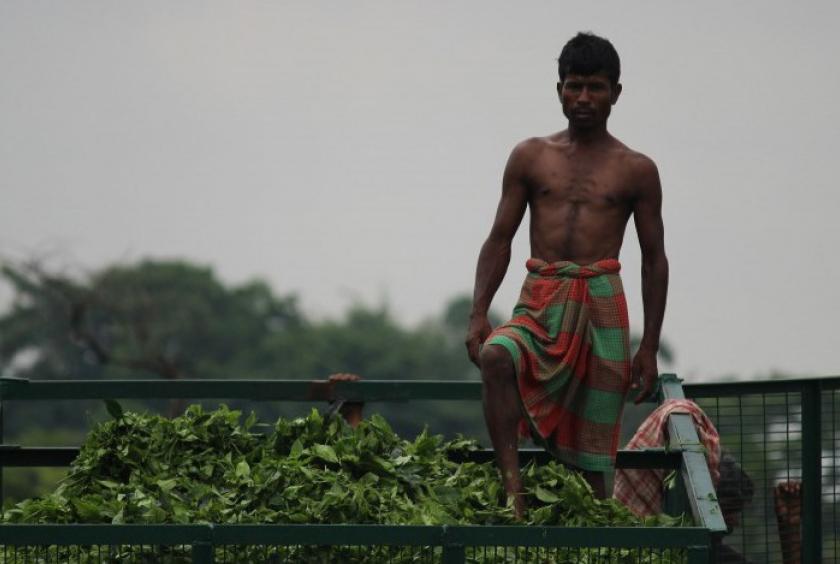
PARBAT PORTEL, BIRTAMOD (The Kathmandu Post) - An ongoing standoff between tea estate workers and tea factories is expected to result in production losses of 10 percent this year as a large acreage of quality tea leaves remain unpicked on the plants.
There are three distinct plucking periods in Nepal and Darjeeling, India. The ‘first flush’ or ‘spring flush’ is an early spring plucking of new shoots that begins from mid-March to May, and the teas are clear, light and aromatic. The second or summer flush lasts from June to mid-August, and the teas have a dark colour and strong flavour. The third or autumn flush lasts from October to November, and the teas had a lighter flavour.
Tea factories expected to make a good harvest of quality leaves this spring due to a favourable winter rainfall, but the protest launched by tea workers has shattered their hopes, factory owners said.
Suresh Mittal, president of the Tea Producers Association, Jhapa said mills might suffer a 10 percent quality tea loss this spring as a result of the protest. Tea factories in Jhapa produce 20,000 tonnes of CTC (crush, tear and curl) tea annually. CTC tea refers to a method of processing black tea in which tea leaves are run through cylindrical rollers that crush, tear and curl them. “The loss of quality tea will affect annual production this year,” said Mittal.
Tea estate workers in the eastern region have been on the warpath since the first week of April demanding that factory owners implement the monthly minimum wage and social security scheme guaranteed by new labour and social security laws. The government has made it mandatory for employers to pay industrial workers a minimum wage of Rs385 daily and create a social security fund by this fiscal year, but tea factories have not implemented the rule. The agitating tea estate workers said that the factories had been paying them only Rs278 daily for the last nine months.
The new law requires employers to contribute an amount equal to 10 percent of the basic salary to the provident fund of temporary employees and pay bonuses.
Mittal said the government was showing no interest in resolving the dispute even though the country’s tea production was expected to drop due to the agitation. Tea factory owners are insisting that the tea industry should not be put in the industrial category as it requires only seasonal workers.
According to the association, there are 34 registered and unregistered tea factories in Jhapa. Each factory produces 10 tonnes of tea daily. Computed on the basis of an average price of Rs20 per kg of green tea leaves, the losses suffered by the factories in the last two weeks come to Rs110 million. Factory owners still don’t know when the protest will end.
Indra Prasad Adhikari, an official of the National Tea and Coffee Development Board, said late harvests cause infection of the red spider mite, a major pest that ravishes tea plants. The pest damages the upper surface of mature leaves, which turn red in severe cases of infestation, resulting in crop loss. “There are remedies to this disease. The infection is growing rapidly as all workers are on protest.” He said that if the pest is not controlled, it might have a long-term impact.
Dipak Tamang, central president of the Nepali Congress-affiliated Nepal Tea Estate Workers Association, said they would intensify the protest if factory owners refused to implement the labour law. In the eastern region, only two tea factories in Dhankuta and three in Ilam have implemented the new law. There are nearly 50,000 tea workers in the five districts in the eastern region.
http://kathmandupost.ekantipur.com/news/2019-04-16/tea-production-likely...















